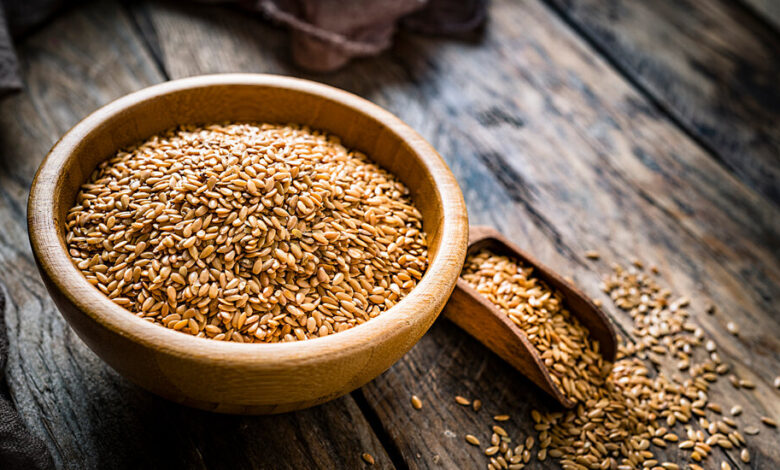Can Flax Seeds Really Substitute for Botox? What Else They Can and Can’t Do

They’re a superfood with less star power than kale or kombucha, often seen as no more than a humble cousin of the famed chia seed.
Flaxseeds found a brief moment in the spotlight with a recent viral TikTok post which implied that slathering the seeds all over your face can reduce wrinkles as well as Botox injections can. But while their skincare benefits are dubious at best, they deserve more credit for how nutritious they are, experts say.
Flaxseeds are one of the richest sources of alpha-linolenic acids, or A.L.A.s, a type of omega-3 fatty acid found in plants and known as a “heart-healthy fat,” said Dr. Selvi Rajagopal, an assistant professor of medicine at Johns Hopkins University School of Medicine. While some research shows that omega-3s may help regulate cholesterol and blood pressure and lower inflammation, she said, most people don’t consume enough of them.
The seeds are also filled with soluble fiber, which draws in water from your body and becomes a gel in your gut, slowing down digestion and helping your body gradually absorb nutrients from what you eat. Fiber-rich foods can stabilize blood sugars and keep you fuller for longer, said Julia Zumpano, a registered dietitian at the Cleveland Clinic in Ohio. Two tablespoons of ground flaxseeds contain about as much fiber as a small apple, and one tablespoon of ground flaxseeds contains more fiber than a cup of raw spinach. That fiber also helps to lower the amount of cholesterol our bloodstream absorbs.
In addition, soluble fiber can fuel the trillions of bacteria and organisms that live in our gastrointestinal tract, Dr. Selvi said, which can help our digestion and gut health.
The seeds also have some of the highest natural concentrations of dietary lignans, chemical compounds in plants that are similar to fiber and may help reduce inflammation. Lignans may also have antioxidant effects, potentially helping reduce D.N.A. damage, said Joanne Slavin, a professor of food science and nutrition at the University of Minnesota Twin Cities. Flaxseeds contain a modest amount of protein, too, Ms. Zumpano added, which means that adding them to a meal can help you feel full.
For all the benefits of flaxseeds, they’re not a cure-all — and they certainly can’t get rid of your fine lines the way Botox can, said Dr. Isaac Neuhaus, a dermatologic surgeon at U.C.S.F. Health. “It’s a bunch of nonsense,” he said.
They can form a moisturizing gel that can help soften the skin, since they are so rich in antioxidants and fatty acids, said Dr. Joshua Zeichner, an associate professor of dermatology at Mount Sinai Hospital. But there is no data indicating that flax seeds are more effective than what you find in the cosmetics aisle.
To reap the health benefits, try adding flaxseeds to your diet by mixing them into smoothies or batter for baked goods, or blending them with water to make a substitute for eggs. Since flaxseeds form a gooey gel when you add them into a liquid, they also work well in overnight oats and porridge, Ms. Zumpano said.
Ground flaxseeds are easier to digest than whole seeds, Dr. Rajagopal said. Keep in mind, though, that if you introduce too much fiber too soon, you might be left with an upset stomach. Eating too many can lead to issues like bloating and overly frequent bowel movements. Ms. Zumpano recommends that people work their way up, starting with around a teaspoon a day and gradually increasing the amount to around two tablespoons per day.
“Sometimes people assume that once something is a magical thing, they should take it in large amounts,” Dr. Slavin said. “Flax is one of those things that can definitely be overconsumed.”
Source link



